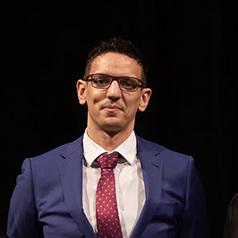
Mark Muhannad Ayyash
Professor, Sociology, Mount Royal University
Mark Muhannad Ayyash is Professor of Sociology at Mount Royal University. He is the author of A Hermeneutics of Violence (UTP, 2019). He teaches and writes in the areas of social and political theory, postcolonial theory, political violence, sovereignty, anti-Palestinian racism, and social movements, particularly focusing on the Palestinian-Israeli struggle. He has published several academic articles, book chapters, and has a co-edited book on Protests and Generations in the Middle East, North Africa and the Mediterranean. His opinion pieces have been published in Al-Jazeera, The Baffler, Middle East Eye, and Mondoweiss, among others.
Less ![]()
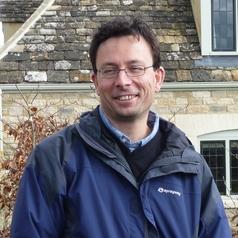
Mark New
Director, African Climate and Development Initiative, University of Cape Town
Mark New was appointed Pro-VC for Climate Change and Director of the ACDI in July 2011. He is also Professor of International Development (part time) at the University of East Anglia. His research focuses on climate change detection, processes, scenarios, impacts and adaptation. He sits on the SA Global Change Science Committee, is on the editorial board of Environmental Research Letters, and various other science committees and reference groups.
Less ![]()

Mark Parker
Assistant Professor in Textile Design, School of Textiles and Design, Heriot-Watt University
I am an Assistant Professor for the BA (Hons) Design for Textiles programme within the School of Textiles and Design. The programme has very established pathways in printed, woven and knitted textiles and the market areas cover fashion, interiors and surface pattern.
Within the School I am responsible for final year textile design units and have responsibility of the coordination of external facing events such as The New Designers Exhibition where the quality of student work on the programme has been recognised by being awarded prizes by companies such as John Lewis, Sanderson Design Group, and The Worshipful Company of Weavers.
I have acted as a subject expert for reviewing textile design education provision for a number of leading UK Universities and I am currently the external examiner for Textile Design at University of Bolton and University of Huddersfield.
My research interests lie in examining the role of drawing on the printed textile curriculum by using archive sources. I have presented on the subject at international conferences such as Textile Research in Progress (Loughborough) as well as exhibiting in Iceland (Reykjavik Museum) and running workshops in China (Tsinghua University)
As a practitioner I have produced artwork and gallery pieces for leading interior & fashion textile companies and galleries across Europe, America and Australia for companies such as Liberty, Sheridan and Scalamandre.
Less ![]()
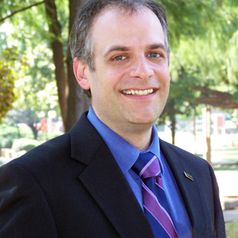
Mark Payton
Mark Payton, Ph.D., is a Professor and Head of the Department of Statistics at Oklahoma State University. He has been on the faculty at OSU for 25 years. His research spans many disciplines, including political modelling, biomedical sciences, and biology.
Less ![]()

Mark Riboldi
Lecturer in Social Impact and Social Change, UTS Business School, University of Technology Sydney
Less ![]()
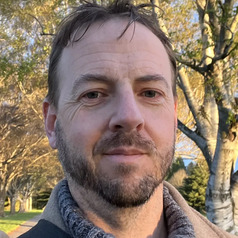
Mark Rickerby
Lecturer, School of Product Design, University of Canterbury
Mark Rickerby is founder of Fictiveworks. a design and technology lab working in the domains of interactive storytelling, creative collaboration, simulation and symbolic AI.
He has more than 20 years experience delivering digital products, publishing projects, games and internal systems for high-growth startups, entrepreneurs, small businesses and government organisations in Wellington, Auckland, Berlin, Sydney and Christchurch.
Less ![]()

Mark Robert Anderson
Professor in Computing and Information Systems, Edge Hill University
After gaining a PhD from the University of Liverpool, Mark worked for a number of large commercial organisations in software development. This work as allowed to gain a broad range of experiences in all aspects of the software lifecycle in industries which have represented the automotive, retail and financial sectors as well as working in consultancy for a number of years.
Since moving into Higher Education, Mark has been employed as a Professor in Computing and Information Systems, and has led courses at both undergraduate and postgraduate levels in subjects such as Grid Computing, Distributed Systems and Java Programming. He has also introduced new subjects into the Computing curriculum in collaboration with colleagues, such as Physical Computing to engage the students with programming activities. Mark has also successfully supervised a number of students through the dissertation/project process and is currently the Programme Leader for BSc(Hons) Computing (Application Development) course and Programme Leader for the MSc Advanced Software Application course.
He has also worked with a number of external clients to develop novel solutions for interacting with customers. In this capacity, solutions have been developed using Microsoft Kinect cameras, Leap Motion, mobile devices and embedded systems.
Mark is currently the Director of the Centre for Data Analysis and Representation on behalf of the department. The group consists of an expanding team and is currently undertaking a number of research projects with national and international partners. Examples of the research projects which the group are investigating includes the Software Validation Project which is researching quality assurance of one of the most significant software models in the world. Mark is also leading the group’s involvement on the international HistorySpace project, and is working with national organisations in developing further projects. Mark is the lead academic on two KTP projects which are aimed at utilising data analytics and visualisation to enhance business processes for local SMEs.
Less ![]()
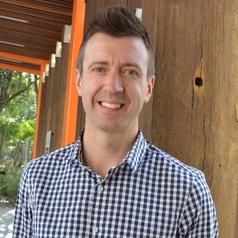
Mark Robinson
Senior Research Fellow, Institute for Social Science Research, The University of Queensland
Dr Mark Robinson is an evaluation and public health specialist in the Institute for Social Science Research at the University of Queensland. Mark has extensive experience leading large scale research and evaluation projects in the public health sector in Scotland, and his work has directly informed national policy and legislation. In his previous role as a Public Health Intelligence Principal at NHS Health Scotland (the national public health improvement agency in Scotland) he led numerous projects to better understand the health of Scotland’s population and the factors that influence it.
Less ![]()
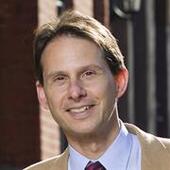

Mark Sandford
Honorary Professor of Local Government, University of Bristol
Mark Sandford is a researcher specialising in local government, devolution, local government finance and territorial identity. He works as a senior research analyst in the House of Commons Library. He has published a number of reports, papers and journal articles on local government finance and English devolution. He has also been a research fellow at the Constitution Unit, University College London, and head of research at the Electoral Commission.
Less ![]()
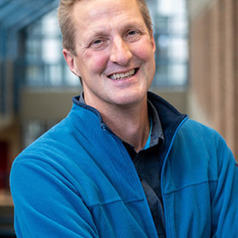
Mark Schaller
Professor, Psychology, University of British Columbia
Dr. Mark Schaller (he/him/his) is a Professor of Psychology at the University of British Columbia. In recent years his research has focused on human motivational systems (e.g., the “behavioral immune system,” the parental care motivational system) and their implications for social cognition and social interaction (e.g., impression formation, moral judgment, prejudice, conformity). His research also addresses broader questions about evolutionary foundations of psychological processes, and about the impact of psychological processes on human culture.
Less ![]()
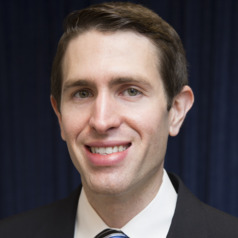
Mark Shepard
Mark Shepard is an assistant professor at Harvard Kennedy School of Government and a faculty research fellow at the National Bureau of Economic Research (NBER). His research studies health care markets, with topics at the intersection of health, industrial organization, and public economics. Much of his work focuses on competition and policy design in health insurance markets, particularly in public programs like the Massachusetts/ACA health insurance exchanges and Medicaid managed care. Mark received his PhD in economics from Harvard University (2015) and his A.B. in applied math from Harvard (2008). He was a Post-doctoral Fellow (in Aging and Health Economics) at the NBER during the 2015-16 academic year before starting as an assistant professor in 2016-17. Before graduate school, Mark spent a year working at the Brookings Institution's Engelberg Center for Health Care Reform (2008-09).
Less ![]()
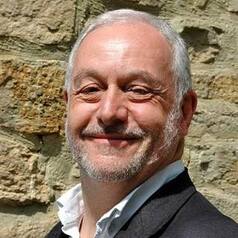
Mark Shucksmith
Professor of Planning, Newcastle University, Newcastle University
Mark Shucksmith is a rural sociologist and Professor of Planning at Newcastle University.
He was Director of Newcastle University’s Institute for Social Renewal from 2012-18, and is also Visiting Professor in Ruralis at the University of Trondheim (NTNU). Before he joined Newcastle University he was Professor of Land Economy at the University of Aberdeen.
He is a Trustee of Carnegie UK, Macaulay Development Trust and European Rural Communities Alliance. In recent years he chaired the Scottish Government’s Committee of Inquiry into Crofting, acted as specialist advisor to two House of Lords select committees, and was a Board member of the Countryside Agency, Commission for Rural Communities and Action with Communities in Rural England (ACRE).
Professor Shucksmith was appointed Officer of the Order of the British Empire (OBE) in the 2009 New Year Honours.
Research interests include: poverty and social exclusion in rural areas, sustainable ruralism, rural development, agricultural policy, and affordable rural housing. He is author of numerous books.
Less ![]()
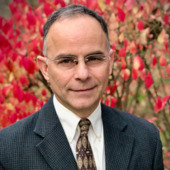

Mark Skilton
Mark's research interests are in technology ecosystems around defining value and monetization; multi-channel operating model strategies; data standards, governance and compliance, and visualization strategies.
He has led large multi-division and multi-country transformation programs in a variety of public and private companies across their supply chains including retail, automotive, aerospace, pharmaceuticals, food & drink, electronics, utilities, transport, financial services and defense. Mark's experience includes new media multi-channel services, big data analytics and mobile ecosystems for new business models having worked directly in digital TV and media organizations and telecommuncations companies for marketing and new business services development.
Less ![]()

Mark Sorin
Étudiant au MD-PhD, chercheur en cancer du poumon, McGill University
Je suis étudiant au MD-PhD à l'université McGill avec un intérêt pour la recherche reliée au cancer du poumon.
Less ![]()
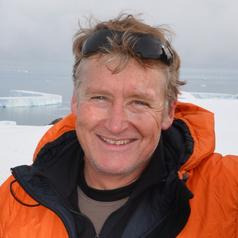
Mark Stevens
Adjunct Associate Professor, University of Adelaide
MARK STEVENS – history
With Adelaide as my hometown I enjoyed playing sports most of the time through school years. Not knowing what I wanted to do I naturally gravitated to university where I graduated with Bachelor of Science (Hons) at Flinders University in 1998. I then did what most considered was an oxymoron and migrated with my ‘soon to be’ wife to New Zealand to undertake a PhD at The University of Waikato followed by Postdoctoral Research at Massey University with a 6-month fellowship with CNRS in Paris in 2008. By this time we had two wonderful ‘kiwi’ kids and had become stout ‘All Blacks’ fans! In September 2008 I began my current research position at the South Australian Museum (clearly free baby-sitting was the motivation at the time). At the South Australian Museum, I enjoy collaborating with researchers from Flinders University and The University of Adelaide (where I am an Assoc Prof affiliate) that have provided excellent research facilities, and opportunities to co-supervise honours and PhD students. This has been possible through research grants from the Australia Pacific Science Foundation to study bee diversity and evolution in the South West Pacific. Recent ARC success in 2021 has come with a 7-year funded ARC Special Research Initiative hosted by Monash University “Securing Antarctica's Environmental Future” (https://arcsaef.com/).
Some stats on me if you like numbers: since 2003 I have a h-index of 38 and an i10 of 101 from 181 publications with over 5423 citations (see Google Scholar for publication list: https://scholar.google.com.au/citations?user=Zhnqx9IAAAAJ&hl=en).
Less ![]()

Mark Stevenson2
Senior Lecturer, University of Sheffield
Mark Stevenson is a Senior Lecturer in Sheffield University's School of Computer Science where he is a member of the Natural Language Processing group. The aim of his research is the development of systems to extract knowledge from text and assist users in accessing this information.
He has been Principal Investigator of projects funded by a range of sources including the EU, EPSRC and Google. He was an EPSRC Advanced Research Fellow and co-ordinator of the EU-funded project PATHS.
He has also worked in a range of commercial and academic organisations including Reuters Ltd (where he was involved in the production and dissemination of the widely used Reuters Corpus), Adastral Park (British Telecom’s research lab) and the Center for the Study of Language and Information, Stanford University.
Less ![]()
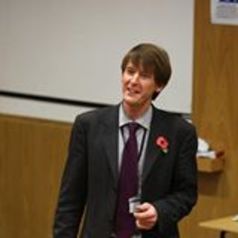
Mark Stuart
Assistant Professor, Faculty of Social Sciences, University of Nottingham
Mark Stuart is an Assistant Professor in the School of Politics and International Relations. For the last twenty years, his main research area (along with Professor Philip Cowley) has been in the realm of parliamentary voting behaviour. He has also published widely in the field of British political biography, having penned portraits of Douglas Hurd (1998) and John Smith (2005). His latest biography - on Eric Forth - is due to be published in the late autumn of 2017.
Less ![]()
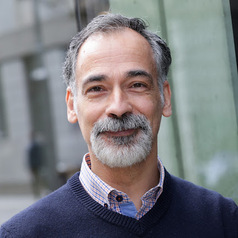
Mark Sujan
Chair in Safety Science, University of York
Mark is a Chartered Ergonomist and Human Factors specialist (C.ErgHF). He has worked in patient safety and other safety-critical industries for over 25 years.
Mark is Professor of Safety Science at the University of York, with a particular focus on safety assurance of systems involving artificial intelligence (AI) technologies. Mark is a Trustee of the Chartered Institute of Ergonomics and Human Factors (CIEHF), which is the professional membership body for Human Factors and Ergonomics in the UK. He chairs the CIEHF special interest group on AI and Digital Health.
Less ![]()
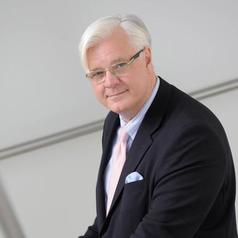
Mark Taylor
Mark Taylor is Dean of Warwick Business School, where he is also Professor of Finance. As well as previously holding a number of senior academic appointments, he has extensive experience of the finance industry as a foreign exchange trader and as a financial markets economist at both the Bank of England and the International Monetary Fund. Prior to taking up the Deanship at Warwick in 2010, he worked as a Managing Director at BlackRock, the world’s largest asset manager, where he led the European arm of a multi-billion dollar hedge fund.
Less ![]()
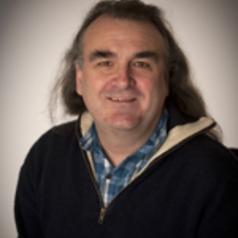
Mark Taylor2
Research Officer, University of Leeds
Before starting a late career in academia I worked in the field of IT. In 1996 I started a new career path when I came to Leeds to read Sports Science (Outdoor Activities).
After graduating with honours in 1999 I continued in this vein with a PhD which focused on the impact absorbing mechanisms of climbing helmets. Upon completion of my PhD I was employed as a Research Fellow on an EPSRC funded project to investigate, among other things, novel ways to improve the measurement of air permeability and moisture vapour transmission. Since the end of this project I have worked in many areas related to comfort in extreme environments and protection from falls from a height.
My research interests cover the comfort and protection of clothing systems for extreme and hostile environments and the role of textiles in protection in falls from height or from falling objects. This encompasses areas as diverse as the design of waterproof zip fasteners, improving the impact absorption of properties of sports protectors, measuring comfort in outdoor footwear and preventing scalding through firefighter clothing systems. I have also been active in the field of biomimetic textiles, and supervised a PhD on superadhesion using the gecko foot as inspiration. I developed miniature data logging sensors that are unobtrusive enough to allow the measurement of the microclimate in a shoe. Work is ongoing to further develop these to remove wires from the system. I also developed a novel new system for quick measurements of moisture vapour transmission under realistic conditions which was extensively tested by a PhD student.
Less ![]()
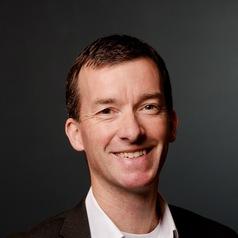
Mark Toon
Senior Lecturer in Marketing and Strategy, Cardiff University
My research looks at relationships between organizations. I’m concerned with groups of organizations that come together to work on a particular project. These alliances are never straight forward and may need help to get to the main goals of the project. Contracts coordinate some of the effort in these circumstances but what particularly interests me is what happens in those areas where the contract either doesn’t apply or doesn’t work. Creative endeavours and collaborative solution building are examples of this and are an increasing feature of our working world. Getting this right is essential for successful project outcomes and this is never more important than when organizations come together to solve human impact issues. Achieving net zero in aviation and even zero emissions - true zero – is possible with successful collaboration. Getting there requires a good understanding of the different agendas and obligations of an enormous range of organizations many of which don’t currently operate in the aviation sector. This is what I’ve been working on with colleagues in Australia and the UK. Jet zero councils and taskforces are the first step up a steep hill. They are unique in having the capacity and authority to push up the incline. My work in sectors such as construction has shown that building good will between the varied organizations and having a common goal can drive success. Carbon abatement in the aviation sector is a pretty compelling goal to rally around.
I hold a PhD, MPhil, MSc and a BSc. I am a Fellow of the Higher Education Academy, UK.
Less ![]()

Mark Tsagas
Lecturer, Criminal Law, University of East London
Mark is a lecturer in criminal law at the Royal Docks School of Business & Law. He has expertise in DV & SA, cybercrime, artificial Intelligence (AI) and law, legal ethics, legal theory and legislative reform. His qualifications include an LLB (Hons) Law, Legal Practice Course (LPC) and PGCert. He is also a PhD Candidate.
His previous employment with restorative justice NGOs and Law Firms, as well as his present occupation with the University of East London, including his ongoing doctoral studies on the topic of cybercrime, have all provided him with a unique perspective on effective education and the need to instil students with appropriate mental wealth.
Yet, he remains steadfast in his appreciation that "university" is not just a place to learn dry facts. It is an environment that encourages positive growth, for the mind, as well as for the spirit.
Less ![]()

Mark van Rijmenam
Mark van Rijmenam is Founder of Datafloq. Datafloq is the One-Stop Source for Big Data, creating the Big Data ecosystem by connecting all stakeholders within the global Big Data market. He is an entrepreneur, a highly sought-after international public speaker and a Big Data strategist.
He is author of the best-selling book Think Bigger - Developing a Successful Big Data Strategy for Your Business. He is co-founder of ‘Data Donderdag’ a bi-monthly (networking) event in The Netherlands on Big Data to help organizations better understand Big Data. He is named a global top 10 Big Data influencer.
In 2016 he started with his PhD doing research on the role and influence of Big Data / Internet of Everything on strategic innovation at UTS.
Less ![]()

Mark Walters
Professor of Criminal Law and Criminology, University of Sussex
Mark Walters is a Professor of Criminal Law and Criminology at the University of Sussex. His research interests are focused primarily on hate crime studies, as well as criminal law and criminal justice reform with a special emphasis on restorative justice practice and theory.
Mark has advised (advises) on hate crime to the Home Office, Law Commission, Metropolitan Police Service, and the London Mayor's Office for Policing and Crime, as well as numerous NGOs and civil society organisations. Mark has also presented research evidence in the House of Commons (UK), the European Parliament (Brussels), and the Oireachtas (Dublin). Most recently he has delivered lectures and training for the United Nations' Asia and Far East Institute for the Prevention of Crime and the Treatment of Offenders in Tokyo.
In 2013 Mark co-founded the International Network for Hate Studies which aims to connect researchers, policy markers and practitioners in addressing the causes and consequences of hate crime and hate speech. The Network now has over 1,000 members worldwide.
Less ![]()
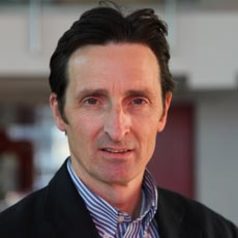
Mark Webber
Professor of International Politics, University of Birmingham
Mark Webber is an International Relations specialist. Having begun his academic career specialising in Russian foreign policy, he has spent the last fifteen years teaching and researching foreign policy analysis, security studies and international organisation. The specific focus of his current research is the politics of NATO and European security cooperation. Professor Webber worked for nearly twenty years at Loughborough University before moving to Birmingham in January 2011 as the Head of the School of Government and Society.
Research and academic interests:
The politics, history and theoretical interpretation of NATO
Foreign policy analysis
Security governance
EU external relationsy
Comparative international organization
Russian foreign policy and the international politics of the former Soviet Union
Current and recent projects:
NATO after Afghanistan (ESRC Seminar Series, concluded October 2015).
Theorizing NATO
Europe after Enlargement
NATO: Survival or Regeneration? British Academy (completed 2007)
Inclusion, Exclusion and the Governance of European Security, Leverhulme Research Fellowship (completed 2004)
Security Governance in the New Europe, joint holder, Economic and Social Research Council, ‘New Security Challenges’ programme (completed 2002)
Less ![]()
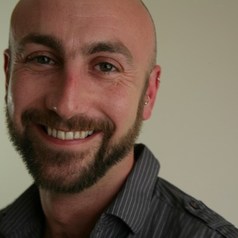
Mark Widdowson
Mark is a Teaching and Supervising Transactional analyst, and a UKCP and European Association for Psychotherapy registered psychotherapist.
Less ![]()

Mark Woolhouse
Professor of Infectious Disease Epidemiology, The University of Edinburgh
Woolhouse is professor of infectious disease epidemiology at the Usher Institute in the University of Edinburgh College of Medicine and Veterinary Medicine. And he is a fellow of the Royal Society of Edinburgh and of the Academy of Medical Sciences. He was appointed a member of the Order of the British Empire in the 2002 New Year Honours for services to the control of infectious diseases.
Less ![]()
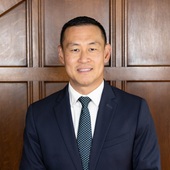
Mark Yenson
King's University College, Associate Professor of Religious Studies, Vice-President and Academic Dean (Interim), Western University
Less ![]()
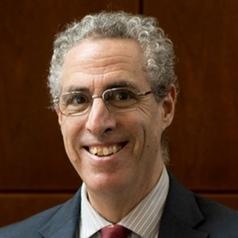
Mark A. Graber
University System of Maryland Regents Professor of Law, University of Maryland
Professor Graber held a faculty position in the Department of Government and Politics at the University of Maryland, College Park, from 1993 to 2007 and taught at the University of Maryland School of Law as an adjunct professor beginning in the fall of 2002. In 2004, he was appointed Professor of Government and Law at Maryland Carey Law, a title he held until May 1, 2015, at which time he received an appointment as the Jacob A. France Professor of Constitutionalism. In 2016, he was named Regents Professor, one of only seven Regents Professors in the history of the University System of Maryland and the only Regents Professor on the UMB campus. He served as associate dean for research and faculty development from 2010 to 2013. He has also been one of the organizers of the annual Constitutional Law "Schmooze," which attracts scholars from across the country to the law school.
Professor Graber is recognized as one of the leading scholars in the country on constitutional law and politics. He is the author of A New Introduction to American Constitutionalism (Oxford 2013), Dred Scott and the Problem of Constitutional Evil (Cambridge, 2006), and co-editor (with Keith Whittington and Howard Gillman) of American Constitutionalism: Structures and Powers and American Constitutionalism: Rights and Powers, both also from Oxford University Press, and co-editor with Mark Tushnet and Sandy Levinson of Constitutional Democracy in Crisis (Oxford 2018). His most recent book is Punish Treason, Reward Loyalty: The Forgotten Goals of Constitutional Reform After the Civil War (Kansas, 2023).
Professor Graber is also the author of over 100 articles, including "The Non-Majoritarian Problem: Legislative Deference to the Judiciary" in Studies in American Political Development, "Naked Land Transfers and American Constitutional Development," published in the Vanderbilt Law Review and "Resolving Political Questions into Judicial Questions: Tocqueville’s Aphorism Revisited," published by Constitutional Commentary.
He has been a visiting faculty member at Harvard University, Yale Law School, the University of Virginia School of Law, the University of Pennsylvania, the University of Toronto, the University of Oregon School of Law, and Simon Reichman University.
Less ![]()
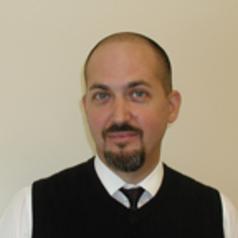
Mark Allan Jackson
Professor of English, Middle Tennessee State University
Dr. Jackson teaches courses on American Literature, Popular Culture, Folklore, and American Song. He published Prophet Singer: The Voice and Vision of Woody Guthrie through the University Press of Mississippi in 2007. In addition, he compiled, edited, and produced several CDs through West Virginia University Press, including Coal Digging Blues: Songs of West Virginia Miners.
Less ![]()
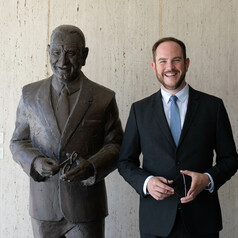
Mark C. Hand
Assistant Professor of Political Science, University of Texas at Arlington
Mark C. Hand researches organizational politics, examining the business of politics, the politics of business and policy about business. He has a Ph.D. from the LBJ School of Public Affairs at UT-Austin and an MBA from the Saïd Business School at Oxford.
Mark's current area of research focus is on the culture, politics and governance of employee ownership trusts, a form of perpetual purpose trust and an emerging alternative to employee stock ownership plans.
Less ![]()
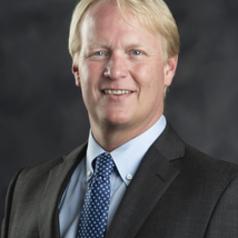
Mark E. Wildmon
Assistant Professor of School Psychology, Mississippi State University
Dr. Mark Wildmon is a full-time Assistant Professor in the Counseling, Higher Education Leadership, Educational Psychology and Foundations department at Mississippi State University. He holds a BCBA and is Licensed School Psychologist. Dr. Wildmon has over 20 years of experience working with children, adolescents and adults with high-intensity needs. Dr. Wildmon’s research interests include developmental disabilities, applied behavior analysis, parent involvement, and homeschooling.
Less ![]()

Mark Kent Mullinix
Director, Institute for Sustainable Food Systems, Kwantlen Polytechnic University
I am an agriculturist and academic. I have been in academia as research scientist and professor for 47years. KPU is the 5th university I have worked for. Prior to immigrating to Canada and joining KPU I was Associate Professor and Endowed Joint Chair in Pomology at Washington State University. I have also worked for the University of Missouri, University of Minnesota and University of Kentucky- all are Land Grant universities with 'Colleges (Faculties) of Agriculture'. I have lived in farming communities and worked with farmers the entirety of my career. I also farm having lived and worked on a diverse family farm in Missouri, owning and operating a small pear orchard on the eastern slopes of the Cascade Mountains with my family, and now establishing a small orchard and vineyard on my farm in Sooke, British Columbia.
In addition to having earned a PhD in Plant Science from the University of British Columbia in 2004, I also earned a PhD in Agriculture Education (1984), MSc Horticulture (1979) and BSc Agriculture (1976) from the University of Missouri.
Less ![]()
- Market Data























